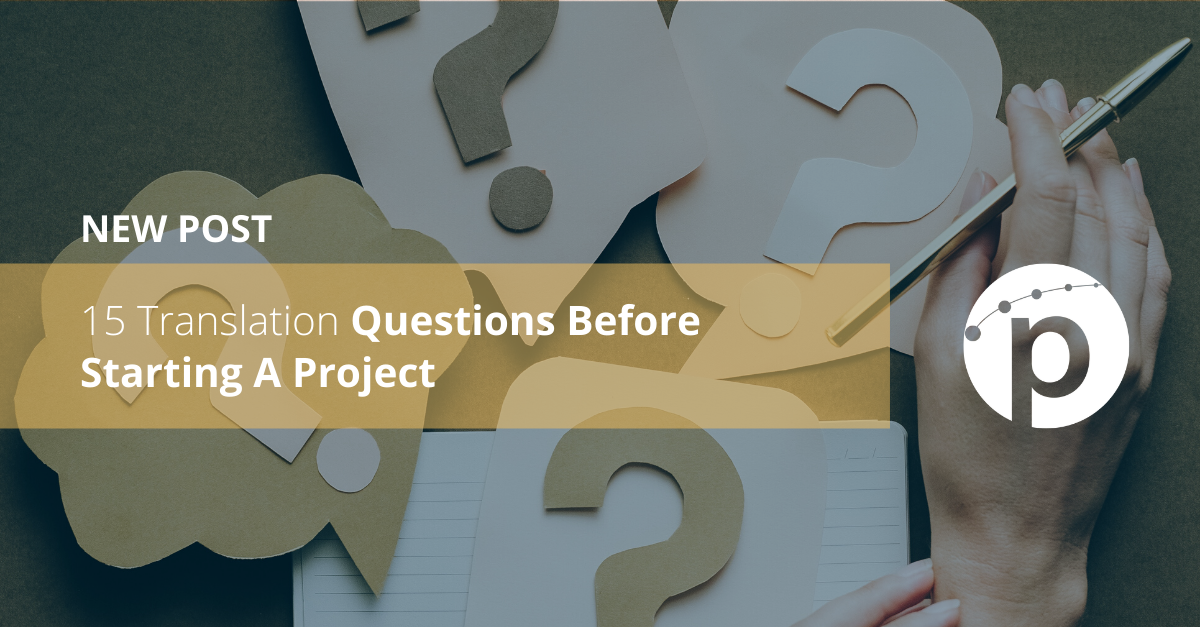- Good rates
- They are fast and always adhere to the most demanding deadlines
- They always strive to provide the highest quality translation
- Great customer satisfaction
- They translate into hundreds of languages
- They (sometimes) have amazing technology
No wonder clients find it hard to decide between them, and cost often becomes a determining factor. Choosing the right translation company is not only hard for clients, but also for hundreds of translation companies themselves that cannot figure out a way to stand out from the crowd. Translation buyers, take note: as in any industry, the best way to determine the quality of your interlocutor or potential translation vendor depends on the quality of the questions they ask before starting your project. That is why we are releasing a little in-house secret, our "Translation Questions For Companies Before Starting A Project" in order to remove any uncertainty before spending large amounts of money on a translation service.
The best way to determine the quality of your interlocutor depends on the quality of the translation questions they ask before starting your project.
We would like to offer you a short checklist for if you are about to hire translation professionals. It should be a given that they will check credentials, ask for translation tests and proof all the work before releasing it to publication. Apart from that, any good translation company ought to ask you these standard questions.
- Do you need a non-disclosure agreement (NDA) because the documents are confidential?
- What is the file format, eg. .DOCX, .PDF, a website, InDesign? Do you require the exact same format to be returned? If you want to translate a website, the strategy is rather different.
- Are you aware that desktop publishing (DTP) is an additional job, as the length of the target language may differ from the original source language?
- Should we translate the text in illustrations or graphics? Should these illustrations or graphics be edited using editing software or translated in a separate line or file?
- Who is the intended target? Dialect, sex, gender, age and even education level can affect the tone, degree of familiarity, or the technical approach needed.
- Do you have native speakers in your organization who will proofread the translation or adapt it to a specific market or audience?
- Are the materials you want to translate internal documentation (higher deadline priority)? Do you assume that meeting the deadline is more important than 100% linguistic correctness?
- Does the current project need to be consistent with previously translated projects in terms of style and terminology? Will it be the basis of documents that may need to be translated later?
- Do you know of any terms that should remain in the original language or have a specific translation because they are product brand names or must be avoided due to legal implications, copyright issues, etc.?
- Do you, as a client, have your own glossary, containing a list of preferred terms?
- If you have used any translation company in the past, do you have a translation memory (TM), of the previous translations?
- Will you have a single point of contact at your organization? Is that person familiar with the translation process? Do you have a system for incoming data, or are you prepared to use our own translation management system? Can your contact point provide samples or reference material?
- Do you want to receive a translation memory once the project is completed? This will allow you to save money and re-use your content in future translations to improve consistency as well.
- If time is essential, do you agree to several translators working simultaneously on your translation project and a final proofreader verifying the text at the final stage?
- What issues did they have with any previous translation companies (if applicable), and how can you best meet their needs to avoid these conflicts?




